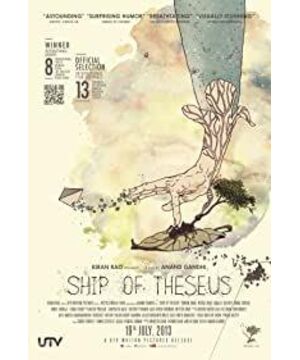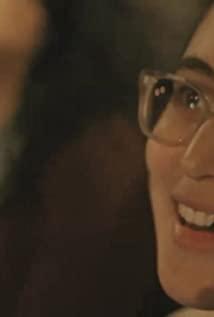It's an excellent film, and it's strange how little people know about it. So there was a faint feeling of discovering an unknown beauty in my heart.
Going back to the movie, as mentioned in the title, this is about partial changes, whether the body and the new individual still belong to the same thing. This height is completely raised to the height of philosophical discussion, so the film is presented in a simple way --
the first story of organ transplantation is
about a blind photographer, she captures it through sound and feeling Lens, the profession that needs eyes the most is actually a blind person. Behind her excellence is the lack of self-confidence of blind people, as well as the unavoidable troubles about the structure of colors and the inability to know the environment at that time. It also has the deliberate pride and stubbornness of the inferior. It was not until the canthus of the eye was transplanted that those controversial photos confirmed the previous incompleteness from the side, and it was only after this that I felt that for the blind, these photographs were truly pure and shocking. What follows is not satisfaction, but an overly splendid sense of the camera. Everything is undisguised and beautiful, and it is displayed in various forms. Every sound, every touch, and every color is revealed. Each is vivid and completely lost in the vastness of a moment's touch.
In the end, she returned to nature alone, looking for something and taking pictures. The moment she raised the camera, the lens cap fell into the jumping river. There was no regret. To feel the beauty of this world with her eyes, only Only then can the heart truly tolerate this vastness and experience this life.
I heard some words a few days ago: loneliness can make people focus on the face, calm down and think. Although this seems unrelated, it is the best summary I can think of.
The second story
(many people like this story and feel that they have been mentioned to a certain height, but I think all three are wonderful, but the appearance of this one is more obvious)
A story about life and death, a thought leader with no frame, in order to implement his own thoughts and spirit, he refused to replace his organs, and would rather sacrifice himself than use the scientific results obtained from experiments on animals. The camera slowly analyzes the process of death from the perspective of a bystander, with weight loss, abscesses, incontinence, and pure spirits that are always skinny and tortured. In a dream with no content, it was at that moment that Sheng seemed so nostalgic. There is a saying in my hometown that it is better to die than to live. It is probably the case, and there is no need to blame yourself. Life is the most noble and should be respected.
The third story
(personally I think this is closer to a movie or story)
A grandson and utopian grandma who only knew how to make money and have a good income, learned about a poor man whose kidney was stolen during a kidney transplant, and helped him find it The transplant recipient, an elderly Caucasian American and a poor and hapless Indian, who would never have intersected, possessed or had the same organ, flowing through blood. The final result is very ironic, saying that the organs that were exchanged were knocked down by money, and I was willing. Human beings have the same organs and joys, sorrows and sorrows. Money, class, and the environment confuse us layer by layer, and bind ourselves to it. Those deep sorrows are human tragedies.
The final video, the man who never appeared in the camera but has been in the movie, in the dark hole, seems to be telling the endless lonely exploration of human beings.
A dialogue between form and reality. To put it another way, I was born and my cells metabolized. Compared with the baby me, I have already taken on a new look. Am I still me, or is it another me? Thinking of Krishnamurti's Book of Living and Dying, realizing that you are dying every minute, you can know that life and death are always with you and me, and embracing death can begin to transcend it. It is no surprise that Indians made such good films.
View more about Ship of Theseus reviews











